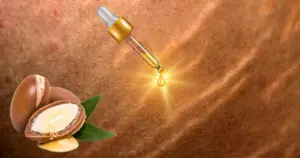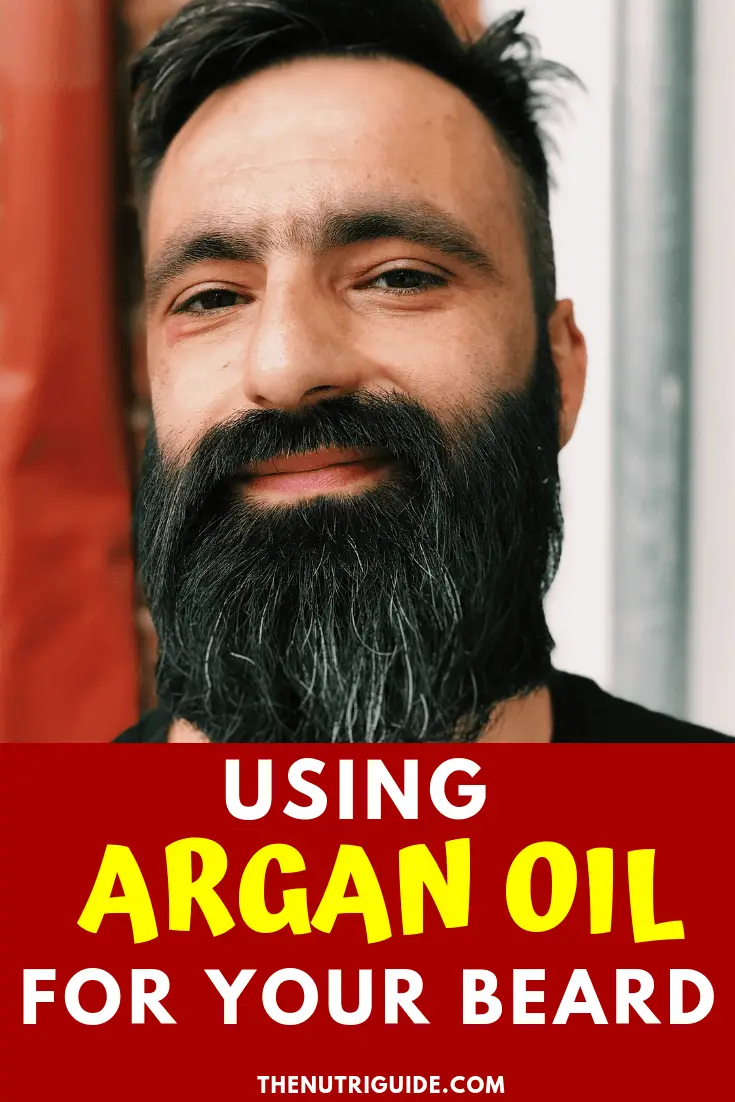Argan Oil for Beard: Naturally Improve Beard Growth & Health
Argan Oil For Beards: Naturally Improve Growth & Health

When you buy through links on our site, we may earn an affiliate commission at no additional cost to you (learn more)
Whether you are new to having a beard or have sported facial hair for years, you may not be aware of what beard oils like argan oil can do for your look. While there are tons of expensive and overly processed oils available today that are marketed for beard care, using just one oil, argan, on your beard can not only help it look better but also help it grow healthier and stronger.
This straightforward guide to argan oil shows you why it makes the perfect beard oil, including how it helps you grow a thicker, fuller beard when you use it.
Understanding Argan Oil
Argan oil is produced from seed kernels that come from the Argania Spinosa or argan tree. This species is native to Morocco and other parts of North Africa, and the majority of commercially available argan oil is Moroccan.
The people of this region have been using the argan tree and its many products for centuries for its healing and therapeutic properties, including its benefits for your hair and skin.
Argan oil is extracted using the cold-press method, which is how it has been done for generations. The fruit of the argan tree is small and fleshy, covered by a thick feel. This pulp surrounds a nut that has a hard shell, and inside is one to three kernels that are used to extract the oil.
Traditional extraction used goats, who ate the fruit, and the kernels were later retrieved from their droppings. Modern methods include drying the fruit, removing the pulp, and then cracking the nut to extract the kernels.
Most of this work is still done by hand, as mechanical extraction techniques have yielded little success. It is still a labor-intensive endeavor to make argan oil, which explains its higher price tag than other oils of its kind.
When making culinary argan oil, the kernels are roasted to develop its nutty flavor and aroma, but cosmetic oils are not baked, leaving them with a more neutral scent. Once pressed and decanted, oil is left to rest for several weeks, and the clear, pure argan oil is filtered of any sediment before packaging.
The Nutritional Makeup of Argan Oil
Argan oil is widely used in regional cooking because it contains essential fatty acids that are good for our bodies, inside and out. These are mostly monounsaturated fats, which are excellent for use on the hair, including beards. When you eat monounsaturated fats, it can enhance levels of testosterone, which is an essential hormone for beard growth. This could account for so many Moroccan men having such long, luxurious beards.
Among the fatty acids found in argan oil, you will discover oleic acid (which makes up nearly half the fats in this oil), linoleic acid, palmitic acid, stearic acid, and small amounts of omega-6 fatty acids. Additionally, argan oil contains antioxidants and Vitamin E.
Using Argan Oil for Beard Care

Beard care is not just about taking care of the hair that is already on your face. It is also about supporting the continued growth of that hair from within the body, which means paying attention to your levels of testosterone and dihydrotestosterone or DHT. These androgens are responsible for triggering and regulating your beard growth, which means any foods or compounds you consume or use on your body that affects these hormone levels could influence your beard’s health.
Nearly all the argan oil’s effects on your body are to raise or support healthy levels of both DHT and testosterone. For example, argan oil has a high concentration of Vitamin E, which not only increases testosterone production, but it is also an excellent hair moisturizer.
Argan oil has been shown to raise testosterone levels, and the glycoside oleuropein, which is found in argan naturally, stimulates androgen synthesis.
External Benefits of Argan Oil for Your Beard
Argan oil is also good for your beard in other ways. The oleic and linoleic acids in argan help to reduce inflammation, which is often the cause of hair loss or thinning hair. With less inflammation, you will also experience less itching, fewer skin problems below your beard, and improved hair growth overall.
When you trim your beard or shave around your beard, especially on your neckline, argan oil is excellent for soothing irritated skin due to these anti-inflammatory properties.
Argan oil also moisturizes your beard hair as well as the skin underneath. It can penetrate your skin without feeling heavy or greasy, and its lightweight viscosity means that it will not weight down your beard or make it appear oily.
Moisturizing your beard can help keep these sometimes-wiry hairs tame, soft, and manageable, which you and anyone who kisses you will appreciate.
Using beard oil continuously improves the look and feel of your beard. Just a small amount of this oil can turn any beard into one you will be proud of, and when you use it regularly, you can avoid dry skin underneath your beard, the dreaded “beardruff” we all hate, and crazy, unmanageable facial hair that makes you wonder why you have a beard in the first place.
How to Use Argan Oil for Your Beard
There are many ways you can apply or use argan oil for your beard. These include:
- As a shampoo- Wash your beard in the shower with a small amount of argan oil. Just a few drops massaged into your beard then rinsed with warm water makes a significant difference.
- As a mask- Apply argan oil to your beard after you shower at night, then wrap it up in a small towel while you are sleeping. The oil seeps into your beard and softens your hair while you rest.
- As a conditioner- You can also leave argan oil in your beard all day instead of rinsing it out. Take a few drops and rub them between your palms or fingers to warm them. Use your hands to work the oil into your beard and style it as you usually would.






